office.mp3: Feeling Fem
It's Women's History Month, so we're showing some serious love from home to our favorite female artists. Pass the time at your casa, and share it with your cat, your plant and your friends on FaceTime.
Stay informed on our latest news!
It's Women's History Month, so we're showing some serious love from home to our favorite female artists. Pass the time at your casa, and share it with your cat, your plant and your friends on FaceTime.

office — Where are you right now?
Wisp — California.
Oh god, it’s so early for you, I’m so sorry.
It’s ok — I had to wake up early for rehearsal anyway.
For the Pachinko show, right? That’s major — congratulations. How’d you swing that?
My manager hit me up about it — Pachinko had reached out and wanted me to support them on tour. I thought that was really cool, because Pachinko was one of the first concerts I ever went to. It’s a really crazy full-circle moment.
Did you tell them that?
Yeah — they’re super sweet guys. And we basically have the same demographic, which is really cool.
So where does the name come from?
I got the name back when I had like, two hundred followers on Instagram because I didn’t have any music out on any streaming platforms yet. But there was this one guy who found me on Soundcloud and he was following me on Instagram. I had posted one of those question stickers that said, “What should my artist name be?” And he swiped up and said “Wisp.” So I just chose that. There were some longer names that had like, two words in them, but I wasn’t really feeling those. Wisp was perfect. It’s been good.
It feels right for your music. Did you have a musical upbringing?
I used to play violin from fourth grade to eighth grade. And when I was little, my mom put me into classes, so that was the only musical instrument I played. But I kind of hated violin because I was forced to learn it. After that, I started taking guitar lessons for a finger–style guitar, but I got tired of that too. I learned electric guitar on my own.
How old were you then?
I was sixteen, so about three years ago.
I feel old. Did you grow up listening to the type of music you make now?
Kind of. It definitely changed throughout the years. I started off with alternative music — I was really into emo rock when I was in middle school.
You and me both.
I was really emo in middle school. It was kind of embarrassing. But I think it fostered my music taste now, so I’m grateful.
And who wasn’t emo in middle school?
That’s true.
If you say you weren’t emo in middle school, I think you’re a liar.
That’s also true.
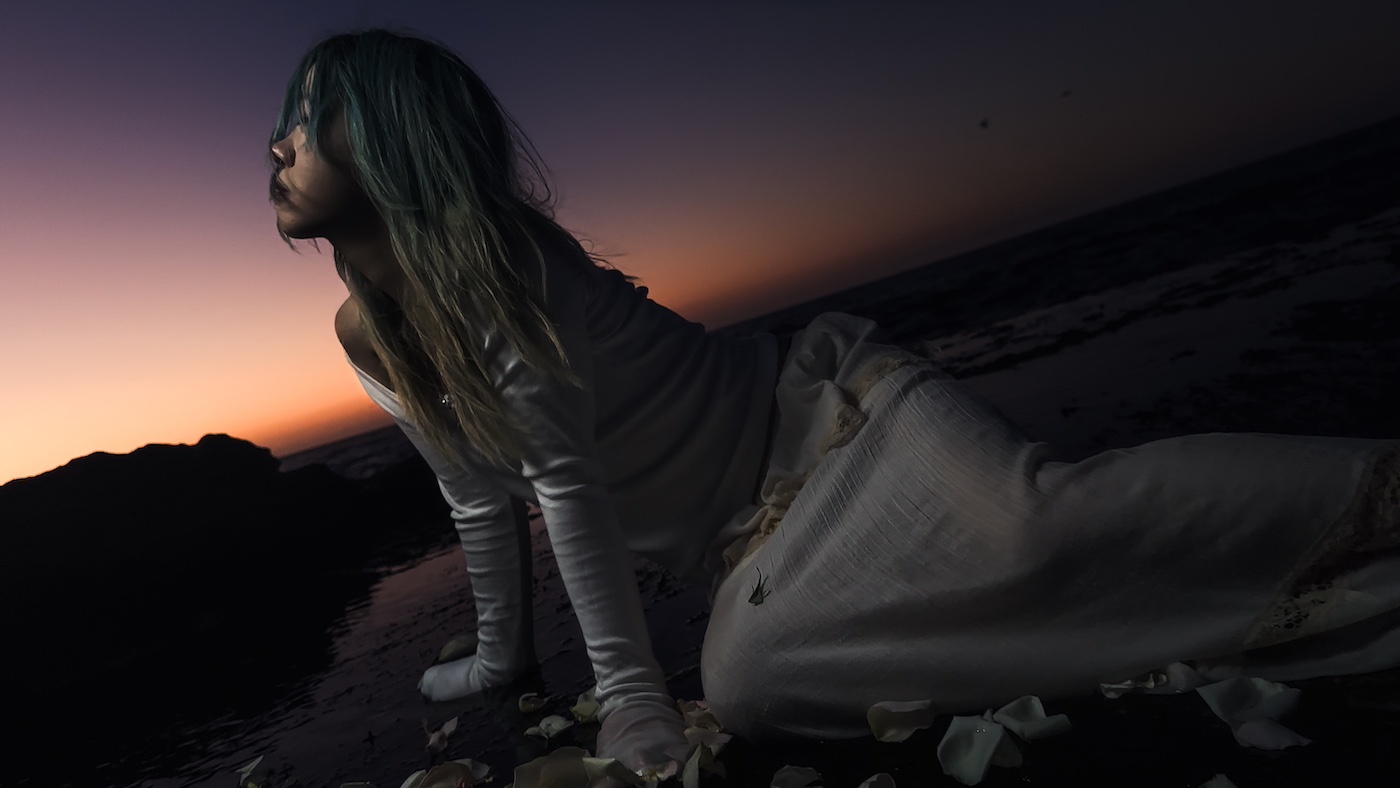
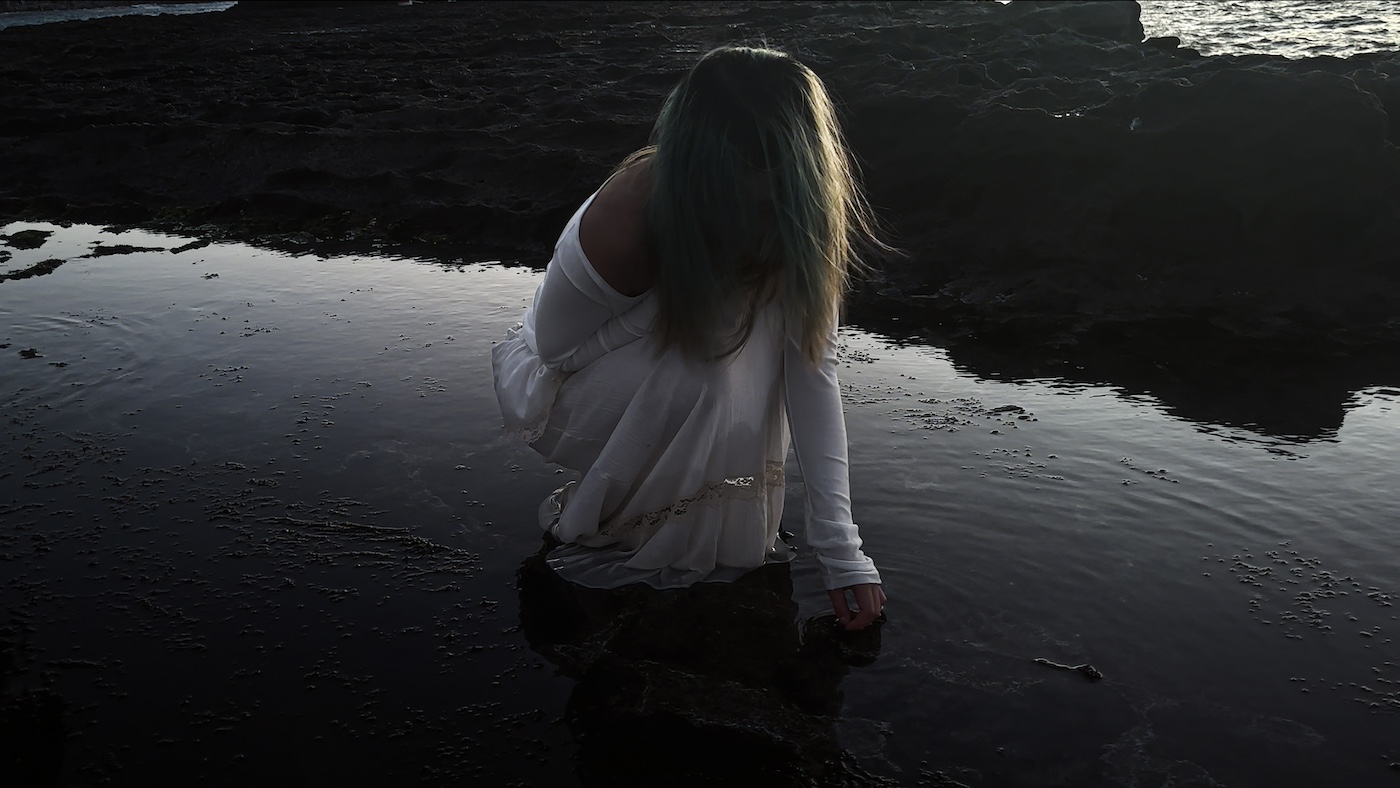
After all the emo music I started listening to dreampop, which was kind of my gateway into the shoegaze world. I was still into older rock as well, so Beach House and Oasis were two of my favorite bands.
Do you remember when you started blowing up?
I was posting a lot on social media and the TikTok algorithm did its thing and my music did really well there.
There’s a little bit of controversy around music that comes from TikTok — did you experience any of that?
I think as long as your music feels genuine to yourself and you’re marketing it as your own work, then it’s a really good platform to promote your work. I see TikTok as more positive than negative because I’ve seen it give a lot of artists all these opportunities to sign to labels, or even to just make more music or have more stream revenue from all the exposure. And that’s really helpful toward achieving your goals and pushing your music out in different ways.
And it helps you find your community. The algorithm is super spooky, but when it knows where you are and shows you people in your area doing the same thing, you have the chance to meet up and support each other.
I’ve made a lot of good friends. Not through TikTok specifically, but the reason I started posting on TikTok was because I saw a post from this band called Juggler — they’re another LA shoegaze band. And now we’re super close buddies.
That’s so sweet. Can I ask why you decided to be faceless on Instagram?
It wasn't really on purpose. I just didn't feel the need to post my face that much, but I started getting more comfortable doing that. So it's not something that I mind doing anymore. It's a whatever thing.
Have you noticed that people treat you any differently — before they knew what you looked like versus after?
Not necessarily, I don't think it makes that big of a difference, which is why I'm pretty comfortable showing my face.
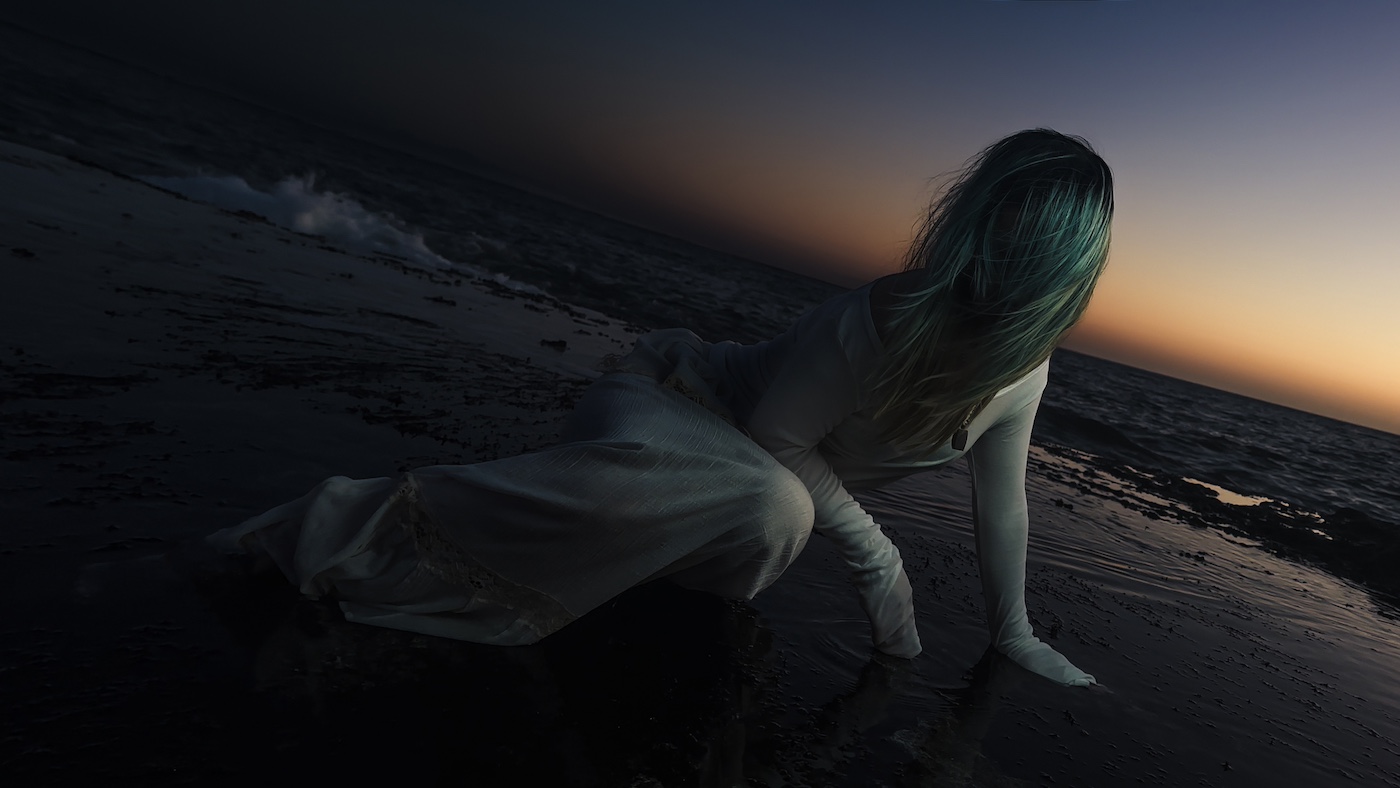
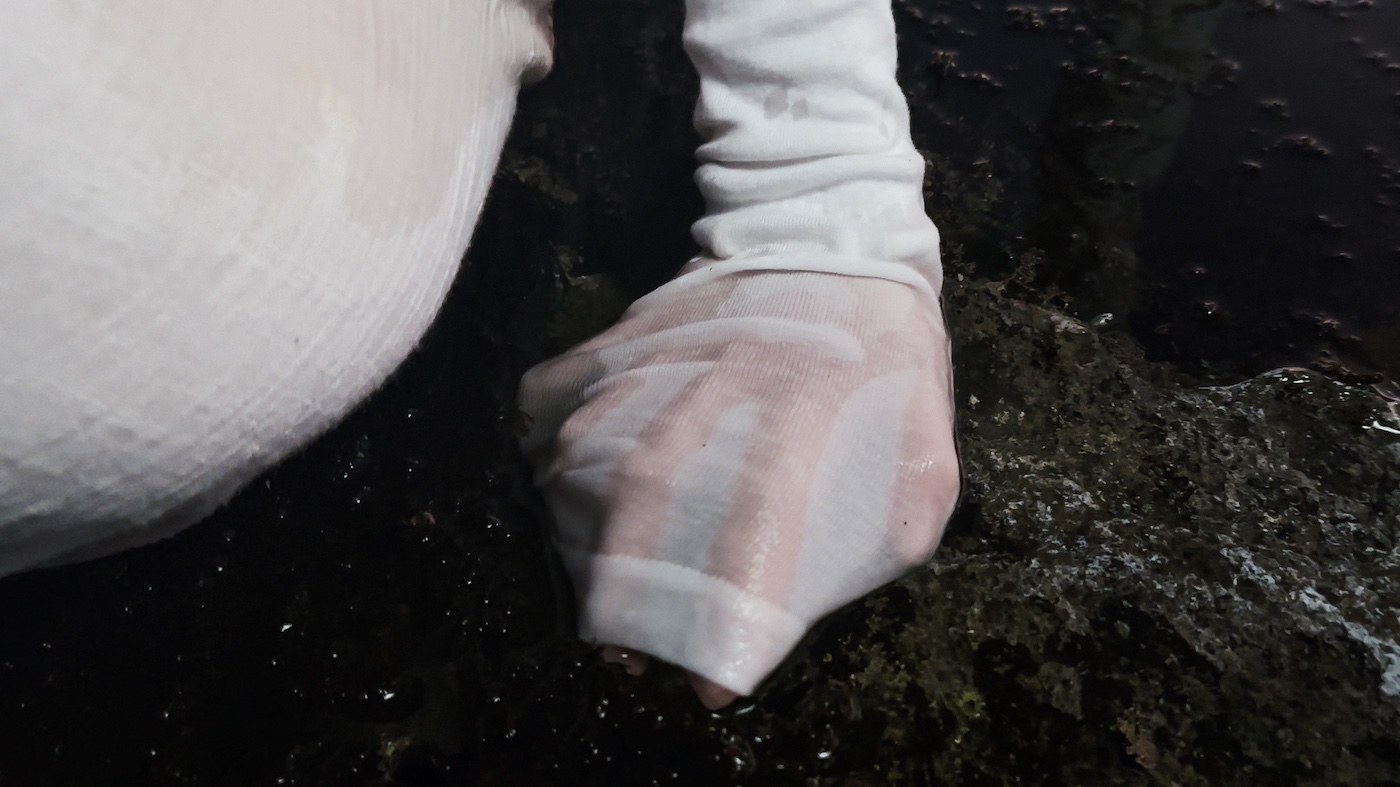
What brought all the songs on Pandora together?
I think, sonically, they just sound really good together. Some songs like “Pandora” and “Luna” share a lot of cool elements that are pretty similar. And I think the themes in the songs are also the same, so they worked well together.
And how has Pandora differed from some of your earlier projects?
It’s definitely more experimental. At the beginning of my music journey or whatever we’ll call it, I was a bit more comfortable with how I was making music and how I wanted my music to sound. But ever since collaborating with other artists and getting inspiration from how they make music as well, I’ve been stepping out of my comfort zone and creating music that’s more experimental. But I’m going down a path that I definitely want to take. I don’t want to just conform to one genre. I want to add different elements from other genres.
That’s what’s so cool about shoegaze. It’s all under the same moniker, and you have a bunch of stuff going on there and everyone hears the distortion and they’re like, “I guess we’ll call it shoegaze if we have to call it anything.” But I think that’s cool — I think you found yourself in a really cool niche.
I think so too. I don’t like to call my music shoegaze. It’s shoegaze adjacent. If I had to coin a term for it, it would probably be nu gaze or something like that.
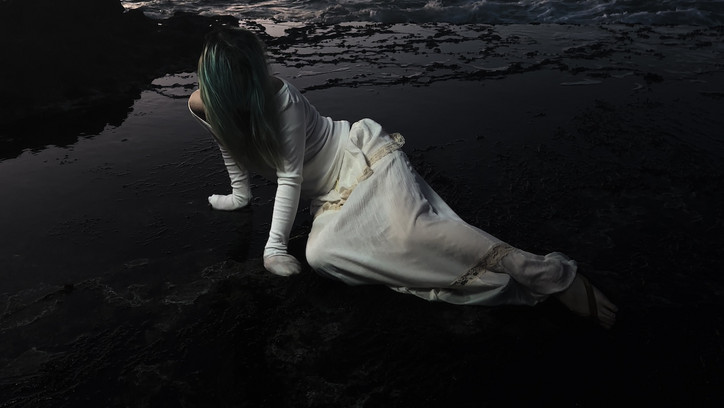
What’s the ideal situation to listen to your music?
A car ride. Or a beach at night. Back in San Francisco, I’d take beach walks at night, and that was around the time I started making music. I’d be listening to my own music and taking walks on the beach, so that’s a memory and visual that I have paired with my music.
I wish I could do that. I’ve never been to California.
Oh, what?
I’m in New York right now and I grew up in Ohio, so I didn’t grow up along the beach.
I love beaches. But I’ve never been to New York either.
Well, you're about to come here.
We can trade.
Do you think growing up in California influenced your sound in any way If you had grown up in any other place, do you think you’d sound different?
I think so. Just because shoegaze is so discoverable in the Bay Area and California in general. It helps foster a community if you’re closer with musical people that are in the same genre and share the same tastes as you. And if I grew up anywhere else, my music taste would have been different. And I feel like the foggy, gloomy vibe in SF really reflects my sound.
Have you ever seen Twilight?
No, but I know what you’re talking about — that gloominess.
I mean, in Ohio it’s just as gloomy, but instead of newgaze, we got midwest emo.
It’s a different type of location-based depression.
What’s something you want people to know about you?
I want a Frenchie so bad. I don’t have any pets but I want a Frenchie.
Someone will read this and be like, “I know a guy who’s selling dogs.” What’s something you don’t want people to know about you?
My bad habits.
We’ll keep it vague for the people.
Thanks.
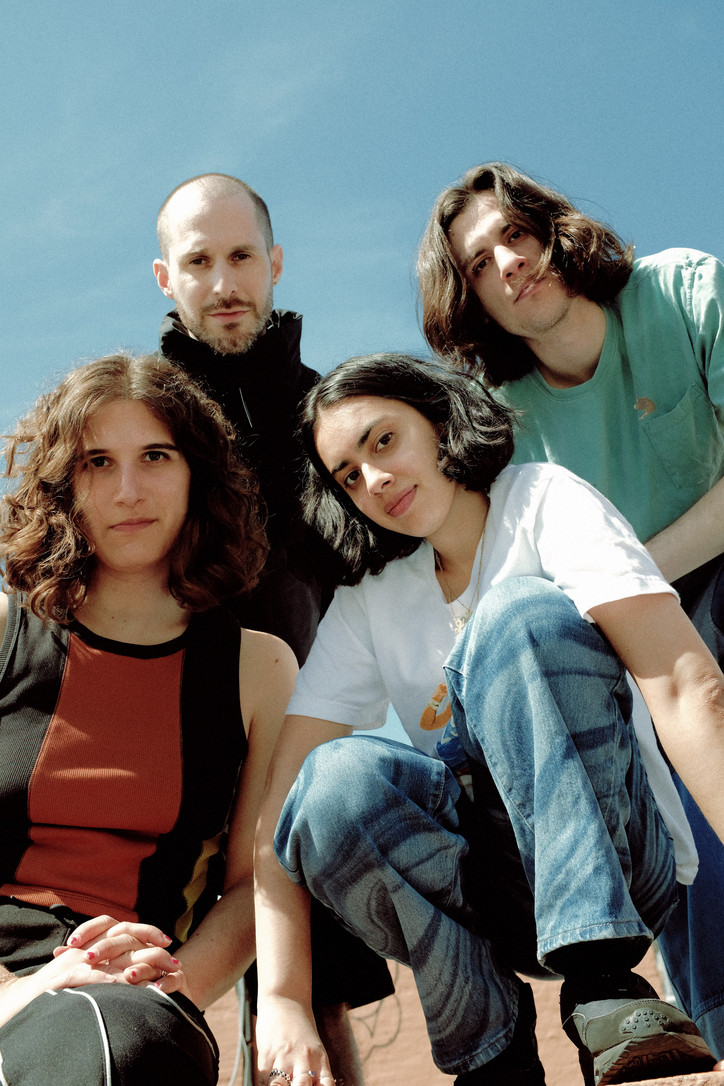
Juliyen Davis — Tell me about the process of making the album. I know on this album you used Silly Putty and in the past you’ve used a condom to get the sounds you were after. Are you in the studio and there just happens to be Silly Putty in these moments, or are you guys pulling up with a box of crafts to every recording session?
Bri Aronow — Sometimes it's just playing around in the studio. It's hard to pinpoint a clear intention.
Lilia Ramani — I feel like we always get into shenanigans.
What do you hope people feel listening to the album? What do you think about when you listen to it?
LR — The songs in this album give me a warm feeling — it’s upbeat, energetic, light, and not so heady. Maybe that was an intention going in, but who knows? Even if you go in with an intention, how it comes out can be different from how you perceive it and how people process it.
BA — I definitely feel like from the beginning, this was an outdoor album — green and vibrant — as opposed to Ice Melt, which is a pandemic album and much more inside and closed off in a dark room vibes.
A few moments from past tours made their way into the album. What are your favorite memories from past tours?
LR — Just the fact that we've been on tour for so much of our twenties, it makes its way into the music. But this album specifically, three of the singles were Crumb tour lore, “Crushxd”, “The Bug” and “(Alone in) Brussels”.
BA — And it’s funny because “Crushxd” and “The Bug” are seedy and gross moments from touring.
LR — But there's such extreme highs and extreme lows on tour, it makes sense that a song would come out of those emotions.
BA — “The Bug” and “Crushxd” specifically have been around for a really long time. They were really written, or we had attempted to record them, for Jinx and Ice Melt. There’s something about coming to peace with these darker early touring moments. It really feels like we're passing it on in some kind of graduation, or turning a chapter.
You were inspired while on tour but you recorded the songs obviously when you got back and could get into a studio. How do you hold onto those emotions and those moments when you come back together and hit record so long after? Do you try to recapture it or do you embrace how you’re feeling in that moment of reflection?
BA — There's something that's preserved from the moment for sure. Even for a live set, we play songs from 2016 through now. There’s something about those that’s stuck in the past.
How do you feel getting ready for another tour soon?
LR — We haven't done a tour directly after putting out an album before, which is exciting because we'll be propelled immediately into playing the thing live. But I feel like our past two European tours have had a lot of bad luck, so honestly I'm cautiously excited. We've never toured there in the summer, so that'll make it fun.
BA — Yeah, this one's a little different because we're playing a lot of festivals outside.
How do you find comfort while on tour?
BA — It's nice to have a day off to chill in the park, be outside, and eat some good food. I like a good bowl of soup.
Do you have a go-to gas station order while on tour?
BA — Gas stations in Texas are wild.
LR — Yeah, have you ever been to Buc-ee’s? They're only in Texas. They're like malls and they have everything. Also, we dipped our toes into Taco Bell last tour, which was a first for me. I was really anti Taco Bell but if you have to choose between McDonald's and Taco Bell, sometimes Taco Bell wins.
Summer break was my favorite time growing up and this album brought me back there. And in a way this is another one you guys don’t get off, but how would you spend it if you did? Did you have a favorite summer break activity growing up?
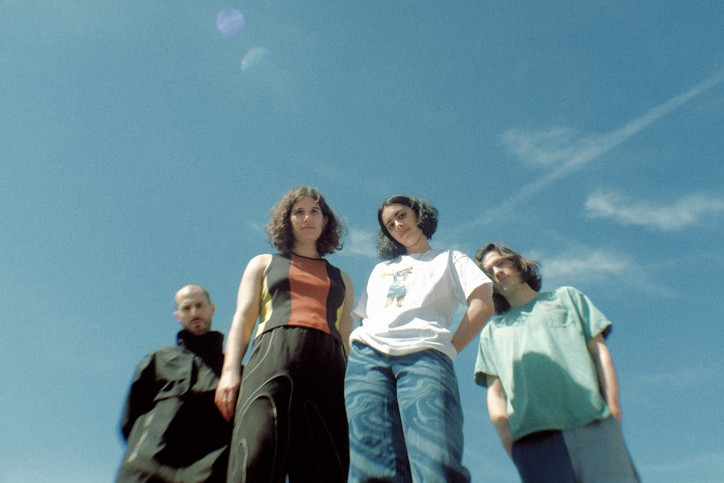
LR — I was never a camp person. I hated camp. I would go for a week and then call my mom asking her to pick me up. I went to a Christian music camp once that was particularly crazy. I think that scared me off for good. But I don't know what I was doing. I was just in the city.
BA — I also hated camp. Honestly, I liked being outside, just swimming and hiking and that kind of thing. Now I love going to the beach, sitting in parks and walking around the city.
You both grew up in NY, right? Were ice cream trucks a thing there?
LR — They definitely used to be way more prevalent, but they're still around.
What was your order?
BA — Choco Taco.
LR — I would do a vanilla cone, no sprinkles.
Is there anything you’re longing for?
LR — I want to unplug from the city and be in nature and not on my phone and see what that does to my brain. I haven't left the city in a while.
BA — Lila wrote about craving home and stability and connection for the album. That was a thread that a bunch of us were feeling and have been manifesting the last few years. We are much more secure in our homes and ourselves than we were a few years ago. This is the first winter in a while where I've been in the city. Something about it feels really nice because I've been wanting to be in one place for a long time, but now it feels like it’d be nice to step away.
I love the “AMAMA” video, it feels like such a special moment. Did your grandma get a chance to see it?
LR — My aunt said that she was gonna play it for her, but I need to follow up on that. She’s in her 90s, lives in Malaysia and has pretty bad dementia — she kind of lives life on a loop in her own world. It’s kind of funny that she became the center of the album and she's not even aware, but it also makes perfect sense.
My grandpa's got Alzheimer's. It’s tough.
LR — It's crazy though because songs are some of the only things she remembers. She still randomly sings songs from her childhood.
It makes me think of how certain smells bring up memories no matter how deep they're buried. It’s kind of magical how music just sticks with you.
I was looking at the album artwork. Is it a quilt?
LR — It's loosely inspired by these Afghan handmade rugs that Abe, our creative director, and I have always been fans of. They tell stories and folklore. And I guess this was the album version of that.

BFRND's Balenciaga Music series features a 4-hour long playlist of his artistic muses, an immersive 8-bit video game, and exclusive t-shirts and zip-up hoodies. BFRND: The Game is a walkthrough of four esteemed Balenci sets: Winter '21, Winter '22, Spring '24, and Summer '24, all complete with their respective soundtracks. Each piece of merch comes with an NFC chip that gives access to an extra level on the game.
Listen to the playlist below.
BFRND's new merch collection is now available in stores and online at www.balenciaga.com/en-us/bfrnd.